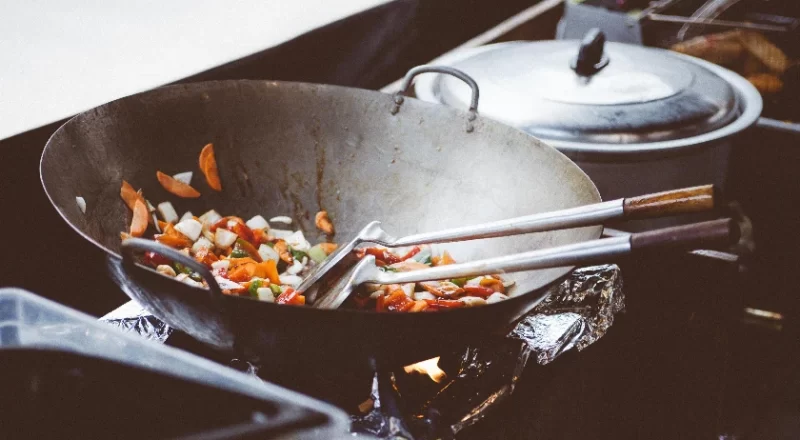For kitchen professionals and enthusiasts alike, keeping your wok in tip-top condition is crucial. One major challenge is knowing how to prevent wok from rusting, especially when working with high humidity or improper storage conditions.

The Big Impact of Rust on Your Wok
Rust can damage the integrity of your wok, affecting its performance and the taste of the meals you prepare. It can make the surface rough and hard to clean, ultimately rendering your beloved cookware ineffective.
Understanding the Causes of Wok Rust
Before diving into how to prevent rust, it’s crucial to understand the primary causes:
- Moisture exposure: Leaving your wok wet or storing it in a humid environment can lead to rust.
- Lack of seasoning: Seasoning creates a protective layer, which when absent, leaves your wok vulnerable.
- Inadequate cleaning: Improper drying or cleaning methods can inadvertently promote rust.
Big Importance of Proper Wok Maintenance
Maintaining your wok involves regular cleaning and seasoning. Seasoning is the process of applying a thin layer of oil and heating it to create a non-stick protective surface over the wok. Regularly season your wok to keep rust at bay.
Step-by-Step Guide to Prevent Rusting
1. Cleaning Your Wok
Begin by washing your wok with hot water and a soft sponge. Avoid soap as it can strip the necessary oils from your wok. Check out our guide on using a wok for more tips.
2. Proper Drying Techniques
After rinsing, thoroughly dry the wok using a cloth or paper towel. Ensure no moisture remains to prevent rust formation.
3. Seasoning the Wok Frequently
Apply a thin layer of high-smoking-point oil to the wok and heat it on low. This creates a protective coating that keeps moisture away.
4. Storing Your Wok Correctly
Store your wok in a dry, ventilated area. Use paper towels or cloth to cover the surface to absorb any moisture. Explore more in our piece on why woks smoke.
Decoding the Seasoning Process
Understanding seasoning is essential to maintain the integrity of your wok. Learn about how seasoning works and its benefits on various types of woks.
The Role of Oils in Wok Maintenance
Choosing the right oil is pivotal. Avocado and grapeseed oils are popular choices due to their high smoking points.
Types of Wok Material
Different materials react differently to rust. Stainless steel, for example, is less prone to rust than carbon steel.
Tremendous Technological Advances in Wok Care
New developments make caring for cookware easier. With advances like rust-resistant coatings, preventing rust is becoming simpler.
Common Mistakes to Avoid
Sometimes, even seasoned cooks make errors. Avoid soaking the wok for long periods, and never use a dishwasher to clean it.
Myths Around Wok Care
Separate facts from fiction. Discover why some practices, like using corrosive cleaning agents, can do more harm than good. For more detailed insights, read this external cooking guide.
Benefits of Owning a Well-Maintained Wok
A well-kept wok enhances your cooking experience, from perfect stir-fries to swiftly seared vegetables. Learn more here.
Conclusion
Understanding how to prevent wok from rusting is key for any kitchen enthusiast. By following these steps, you ensure your wok’s longevity, allowing you to continue creating fantastic meals.

Frequently Asked Questions
Why is my wok rusting after every use?
This might be due to improper drying or lack of seasoning after each use.
Can I save a rusty wok?
Yes, you can scrub off the rust and re-season the wok to restore its condition.
What should I not do with my wok?
Avoid using abrasive materials and harsh soaps that can damage the wok’s surface.
As an Amazon Associate, I earn from qualifying purchases.

